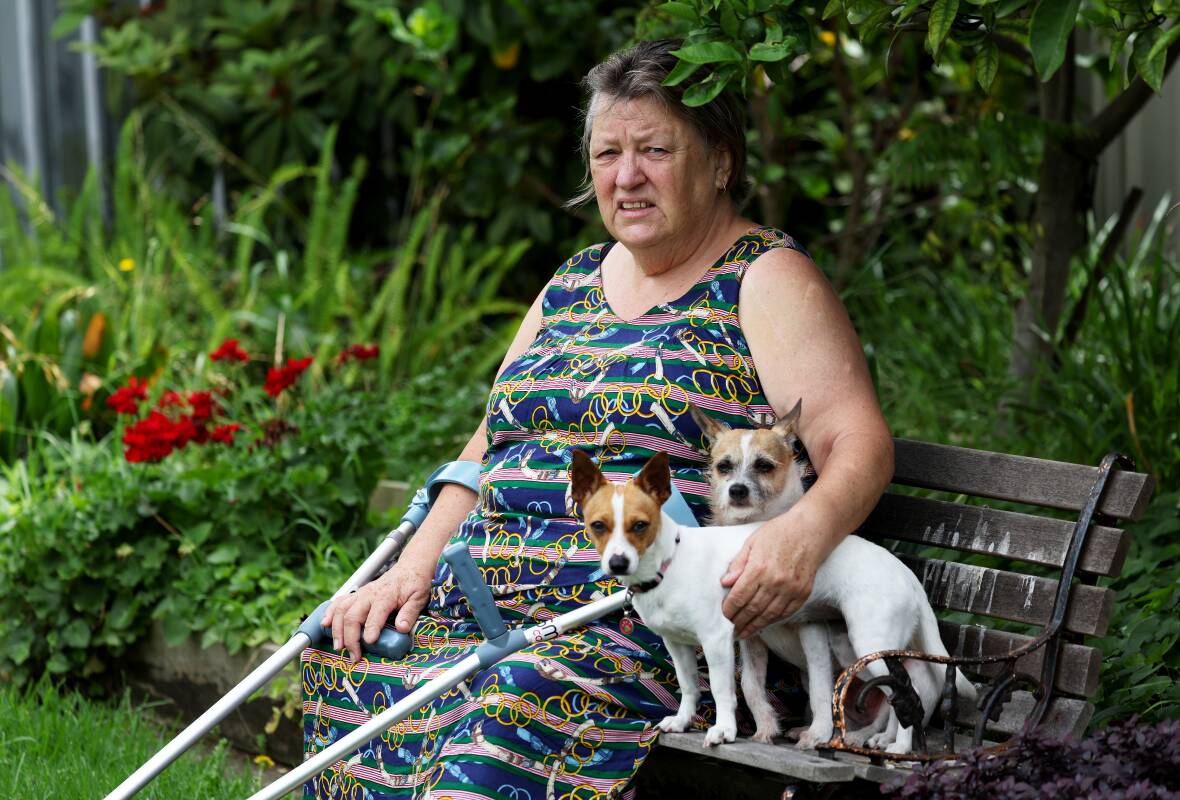
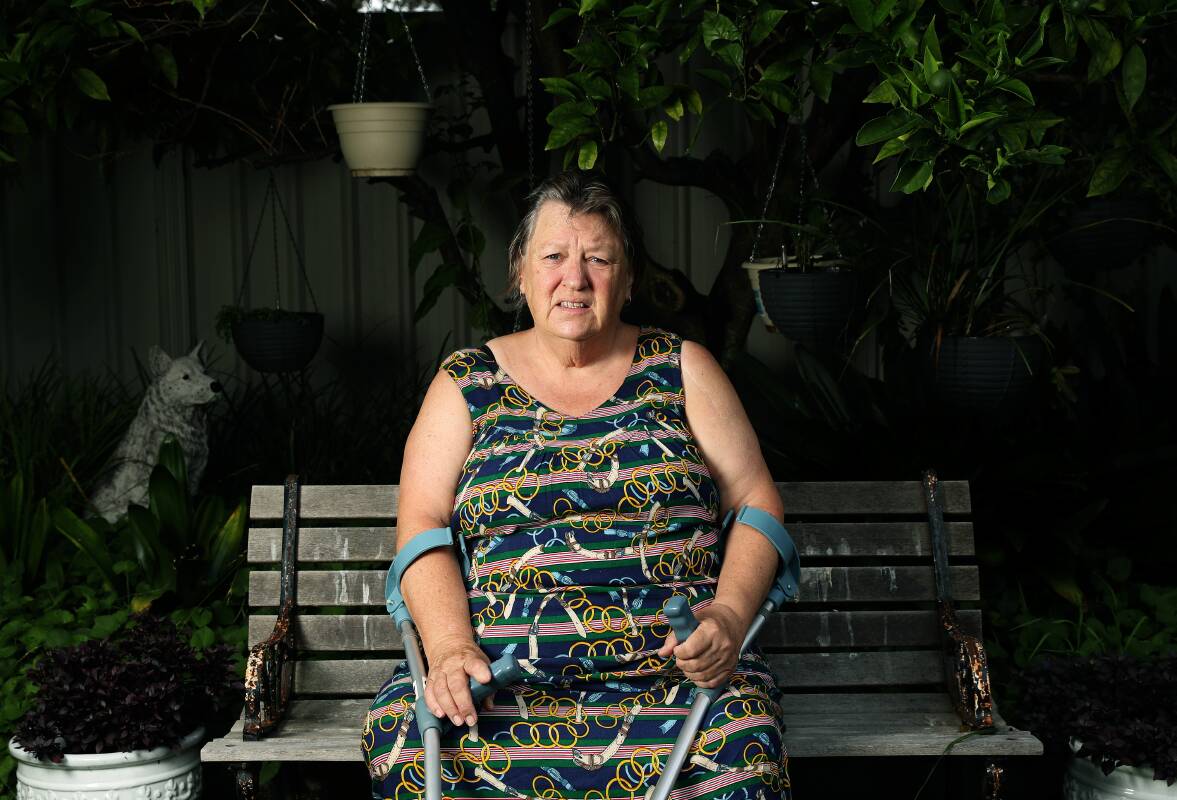

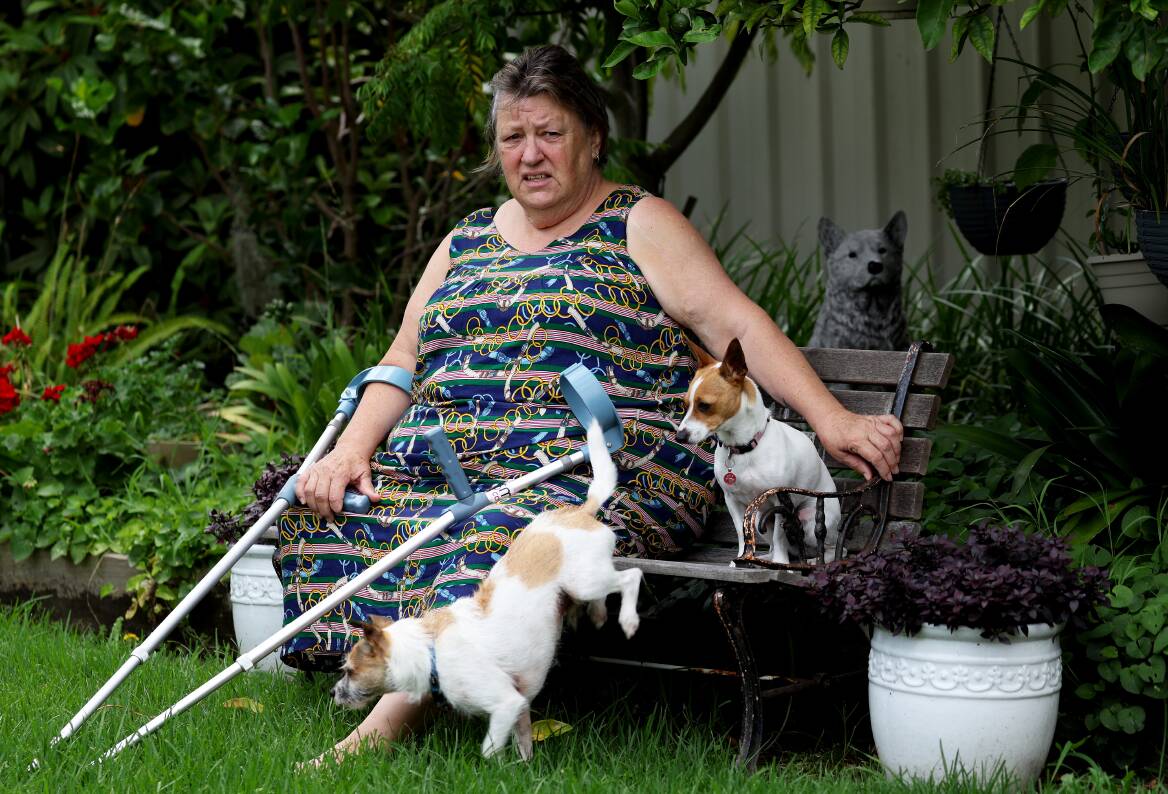

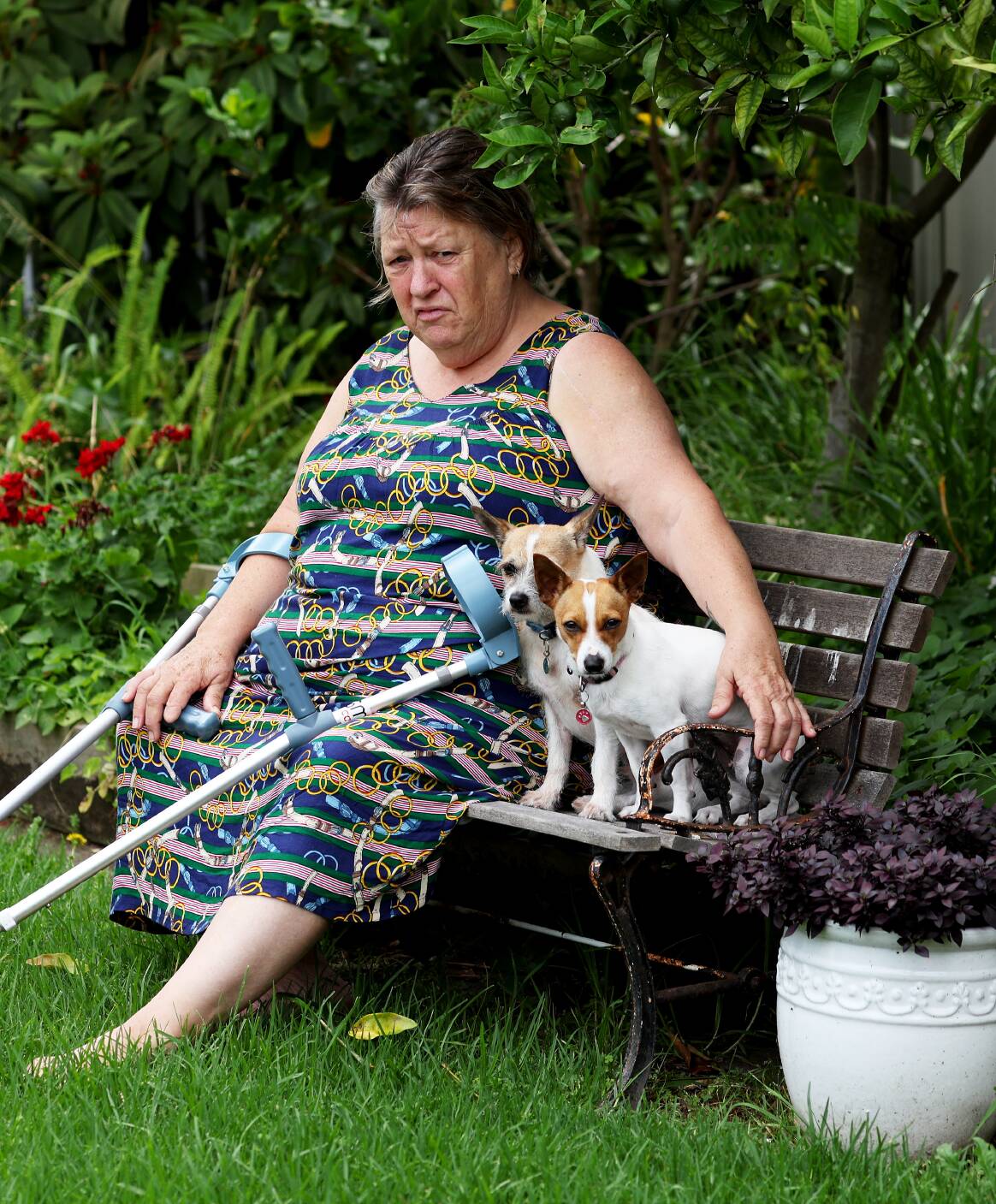
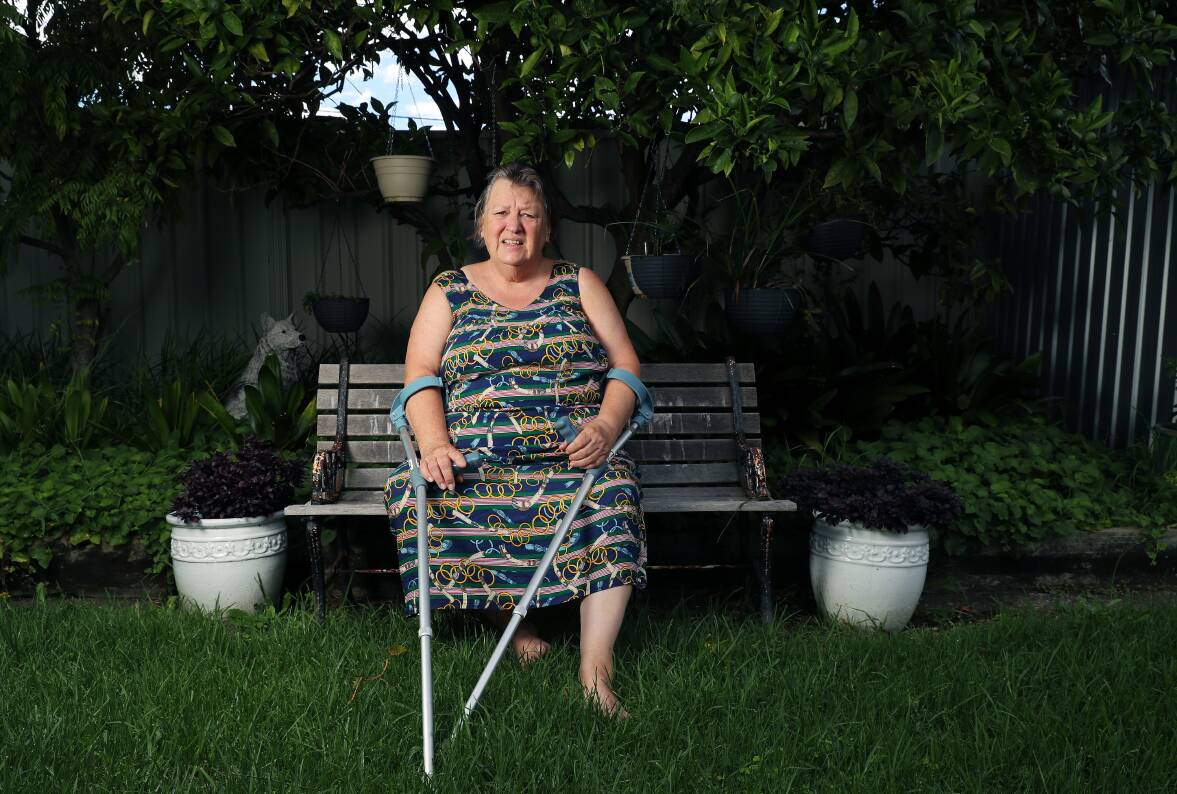
Kathleen Parsons lives with constant pain while waiting for a hip replacement in the public hospital system.
She's on a 12-month waiting list for surgery and has faced challenges with her weight and mental state, on top of the pain.
"The pain is there all the time, even with strong painkillers," said Ms Parsons, 63, of Halekulani on the Central Coast.
"I don't feel like I'm addicted to the painkillers, but who's to say when I try to go off them.
"I said to the GP if I become addicted to them, I'll deal with that after. It's worth it."
Before she was prescribed strong opioids, she'd lay on the bed in tears "without doing anything".
And even with the drugs, she finds the pain increasingly difficult to cope with.
Ms Parsons, a former Canberra public servant, saw a specialist in Bowral about her hip, as he did her two knee replacements a decade ago.
She said the waiting list to see a specialist on the Central Coast was too long.
The Bowral specialist told her she needed a hip replacement, but surgery at a small hospital was not possible because "anybody with a BMI [body mass index] over 45 has to go to a large public hospital with an ICU".
"For me to have a BMI of 45 or less, I have to be under 100 kilos. I was 125 kilos when I went and saw the specialist."
Obesity experts and patients have previously raised concerns about the use of BMI to deny people surgery.
Ms Parsons now weighs 115 kilograms.
"I don't know if I'll get to 100 kilos. I'd like to. I can't exercise and I comfort eat due to past trauma," she said.
She has faced mental health challenges and relationship difficulties. Her house burnt down in the Canberra bushfires in 2003.
After seeing an orthopaedic surgeon in Fairfield, she was told the waiting list for a hip replacement at Fairfield Hospital was 12 months.
It has an ICU, so she won't have to lose more weight. She hopes to have surgery there in April or May next year.
Chronic Pain Australia's vice president Fiona Hodson said "it's not uncommon for people to sit on a protracted waiting list for orthopaedic surgery".
"Although it sounds cruel to say to people you must lose weight before we can operate, it's partly because it will give people a better surgical outcome," Ms Hodson said.
"There are pros and cons with that because it's really hard for all of us to lose weight.
"If you've got pain you can't exercise, so it's a vicious cycle."
She said opioids can help people's pain, but they "can become dependent on them and need to take more to get the same effect".
"It really is a vicious cycle and not an uncommon scenario. It's an unfortunate outcome of our hospital waiting lists and the resources we have."
NSW Health says assessment of pain is essential to successful pain management.
"A pain assessment guides the selection of treatments, and provides a baseline against which to measure a patient's progress during treatment."
It states that existing evidence "does not support the long term efficacy and safety of opioid therapy for chronic non-cancer pain".
"Ideally, assessment by a pain clinic or consultation with a pain medicine specialist should precede the prescription of oral opioids."
The most recent Bureau of Health Information quarterly report shows that 3106 people in NSW are waiting for a hip replacement.
The NSW government announced a surgical task force in May to "improve the delivery of surgical services and reduce the state's elective surgery waiting list".
Health experts have called for Australia to establish multi-disciplinary teams to provide integrated and free care for people like Ms Parsons.
Ms Hodson said an "active waitlist management approach" was being considered in Australia to support people in Ms Parsons' situation.
"It's done overseas. It would mean people being supported by physiotherapists and allied health professionals to self manage their weight and pain," she said.
"You can get five allied health visits subsidised by Medicare through a GP. But there will still be that gap payment to see a physio or dietitian, if you can get in to see someone."
Ms Parsons said it was a similar situation with Medicare-subsidised psychology services.
"The gap is too big for people on low incomes," she said.
The federal government's Strengthening Medicare Taskforce report, released in February, recommended boosting allied health services though primary health networks.
The government is seeking to tackle staff shortages in the allied health sector, which have led to people increasingly missing out on access to services.







